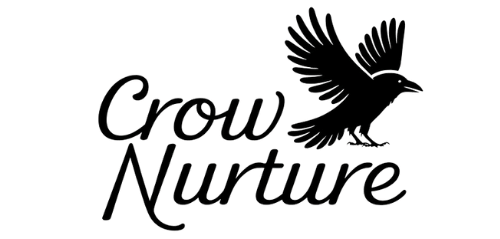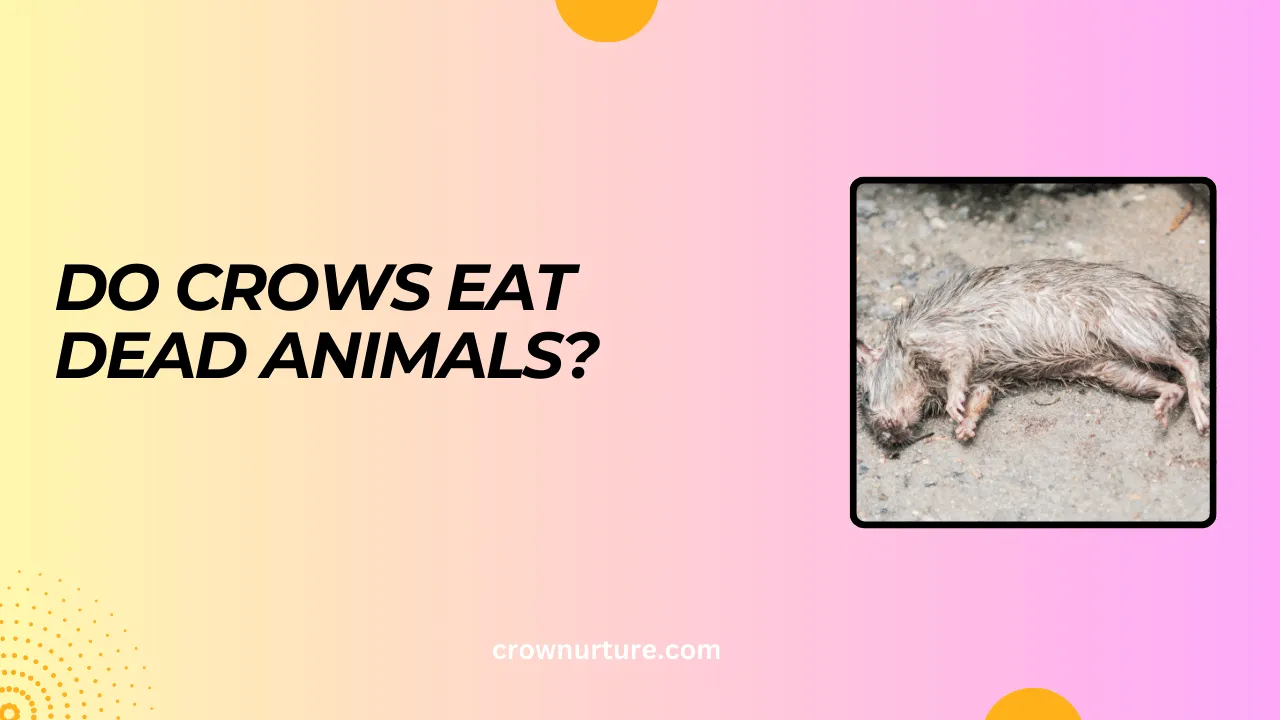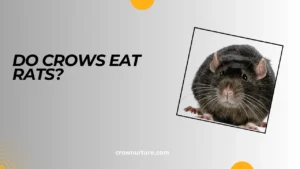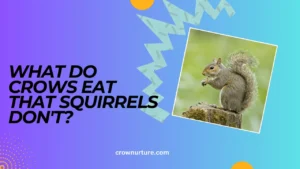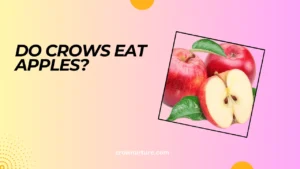Crows have long fascinated humans with their intelligence, adaptability, and social behaviors. Yet, one aspect of their lifestyle often sparks curiosity and sometimes even unease: their relationship with dead animals.
Are these birds natural scavengers, or do they only consume carrion under certain conditions? Understanding this aspect of crow behavior is not only important for bird enthusiasts but also sheds light on their ecological role.
Scavenging isn’t merely a survival tactic for crows—it’s a behavior that helps maintain balance in ecosystems by recycling nutrients and reducing waste.
In this article, we will explore the dietary habits of crows, their remarkable ability to scavenge, the specific types of dead animals they consume, and the benefits and challenges associated with their scavenging behavior.
By the end, you’ll see why these misunderstood birds deserve admiration for their ecological contributions.
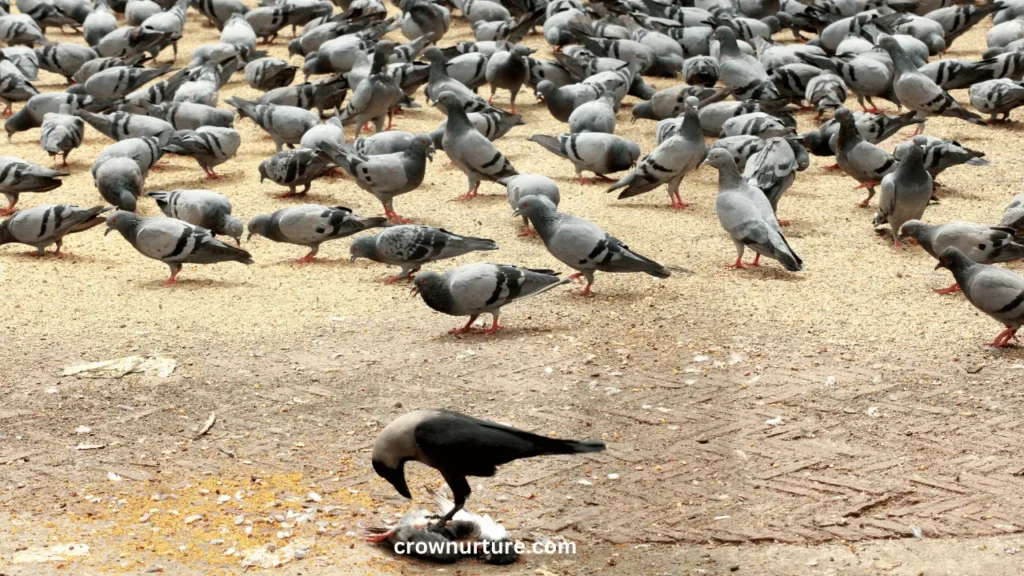
Contents
1. The Crow’s Diet: A Versatile Eater
Crows are omnivores, meaning they consume both plant and animal matter. Their diet includes everything from fruits, grains, and nuts to insects, rodents, and even garbage.
This wide range makes them one of the most adaptable bird species. Their dietary preferences often depend on availability. In forests, crows may focus on berries and small prey, while in urban areas, they exploit food scraps and garbage.
This adaptability has allowed them to thrive in environments as diverse as rural farms and bustling cities. When it comes to carrion (dead animals), crows play a significant role.
Carrion becomes particularly important during colder months when live prey and vegetation are scarce. This resourceful approach ensures their survival even in harsh conditions.
2. Scavenging Behavior in Crows
Crows are opportunistic scavengers, meaning they take advantage of whatever food source is available. This behavior is common among birds with high levels of intelligence, as it requires adaptability and quick decision-making.
By consuming dead animals, crows contribute significantly to ecosystem cleanliness. They remove decaying matter, preventing the spread of diseases caused by decomposing carcasses.
However, crows don’t scavenge randomly. Several factors influence this behavior, including the availability of fresh food, competition from other scavengers (like vultures or foxes), and the safety of the feeding site.
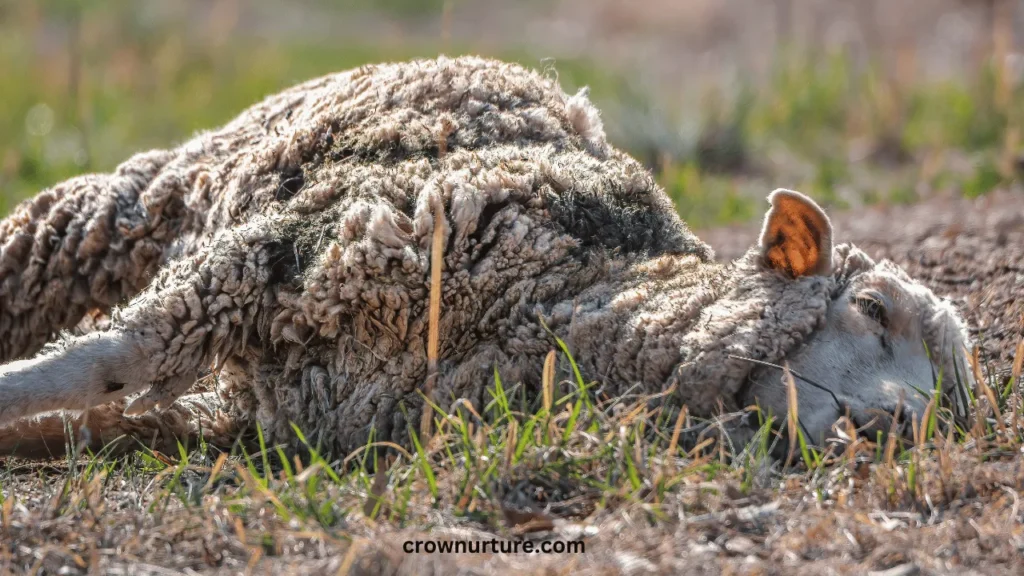
3. Types of Dead Animals Consumed by Crows
Crows consume a variety of dead animals, depending on their habitat and the season. Some examples include:
- Small mammals: Rodents, rabbits, and squirrels are common in rural areas. Crows are adept at tearing apart soft tissue, allowing them to access nutrients quickly.
- Birds: Weak or injured birds are sometimes targeted, and crows often scavenge the remains of other bird species.
- Fish: In coastal or aquatic environments, crows feed on fish that have washed ashore or been discarded by fishermen.
- Larger carcasses: Roadkill, dead livestock, and other large animal remains are consumed, especially if other scavengers like vultures have already exposed the softer tissues.
This variety in diet showcases the adaptability of crows and their role as nature’s cleaners.
4. Benefits of Scavenging for Crows
Scavenging provides several nutritional and ecological benefits to crows and the environment:
- Nutritional efficiency: Carrion is an abundant and easily accessible source of protein, essential for energy and reproduction.
- Energy conservation: Hunting live prey requires significant effort, while scavenging minimizes energy expenditure. This efficiency is especially important during winter or breeding seasons.
- Ecosystem contribution: By consuming carrion, crows help recycle nutrients back into the soil and reduce the spread of pathogens associated with decomposing matter.
In addition to benefiting themselves, their scavenging behavior regulates pest populations, as they often consume rodents and other small animals that could otherwise become overabundant.
5. Potential Risks of Scavenging
While scavenging offers many advantages, it also comes with risks for crows:
- Disease exposure: Eating contaminated carcasses can expose crows to bacteria, viruses, and parasites. However, their robust immune systems often help them tolerate these challenges better than other species.
- Competition: Scavenging sites are rarely uncontested. Crows often face stiff competition from larger scavengers like vultures, foxes, or even stray dogs, which can lead to territorial disputes.
- Human-wildlife conflict: In urban areas, crows scavenging garbage or roadkill may be seen as nuisances. Their loud calls and group behavior can sometimes lead to conflict with humans.
Despite these risks, crows’ adaptability and intelligence allow them to navigate these challenges successfully.
Conclusion
Crows are remarkable birds with an extraordinary ability to adapt and thrive in diverse environments. Their scavenging behavior, including consuming dead animals, plays a critical role in maintaining ecological balance.
By acting as nature’s recyclers, they prevent the spread of disease and contribute to nutrient recycling in ecosystems. While scavenging comes with its risks, crows’ intelligence and adaptability help them overcome these challenges.
Their behavior highlights the interconnectedness of all living beings and the importance of each species in sustaining the natural world.
By understanding and appreciating their role as scavengers, we can better coexist with these intelligent birds and acknowledge the vital services they provide to the environment.
FAQs
1. Do crows eat dead animals exclusively?
No, crows are omnivorous and eat a variety of foods, including fruits, insects, seeds, and live prey.
2. Why do crows eat dead animals?
Dead animals are a readily available source of nutrients, especially when other food is scarce.
3. Can crows get sick from eating dead animals?
While crows face a risk of disease transmission, their immune systems are strong, and they can often tolerate pathogens in carrion.
4. How do crows find carrion?
Crows use their keen eyesight and social communication to locate carrion, often following other scavengers to feeding sites.
5. Do crows compete with other scavengers?
Yes, crows compete with vultures, foxes, and other scavengers, but their intelligence often gives them an edge.
6. Are crows harmful to humans?
Generally, no. However, crows scavenging garbage or creating noise can sometimes lead to minor conflicts in urban areas.
